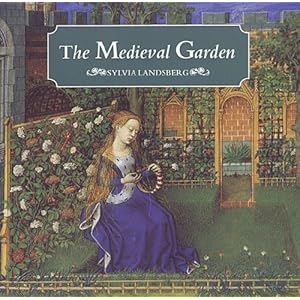Chaucer's Daisy
I have just been rereading Chaucer’s obscure work The Legend of Good Women, and I discovered this delightful ode to a daisy in it. Chaucer’s devotion to the daisy seems earnest and intense:
Now have I than swich a condicioun,
That, of alle the floures in the mede,
Than love I most these floures whyte and rede,
Swiche as men callen daysies in our toun.
To hem have I so great affeccioun,
As I seyde erst, whan comen is the May,
That in my bed ther daweth me no day
That I nam up, and walking in the mede
To seen this flour agein the sonne sprede,
Whan hit upryseth erly by the morwe;
50 That blisful sighte softneth al my sorwe,
So glad am I whan that I have presence
Of hit, to doon al maner reverence,
As she, that is of alle floures flour,
Fulfilled of al vertu and honour,
And ever y-lyke fair, and fresh of hewe;
And I love hit, and ever y-lyke newe,
And ever shal, til that myn herte dye;
Al swete I nat, of this I wol nat lye,
Ther loved no wight hotter in his lyve. (40-59)
It starts to sound less like a daisy and more like a lady the further into the poem you get, and sure enough, a daisy lady does appear to him in a dream vision to command him to write a poem about good women for a change. This could be an actual queen, Queen Anne, and thus an autobiographical allusion to the process of being commissioned to write poems. Whatever the case,Chaucer continues to rhapsodize about the actual daisy flower and his love for it throughout the prologue to this work:
That in my herte I fele yit the fyr, That made me to ryse er hit wer day -- And this was now the firste morwe of May -- With dredful herte and glad devocioun,110 For to ben at the resureccioun Of this flour, whan that it shuld unclose Agayn the sonne, that roos as rede as rose, That in the brest was of the beste that day, That Agenores doghter ladde away. And doun on knees anon-right I me sette, And, as I coude, this fresshe flour I grette; Kneling alwey, til hit unclosed was, Upon the smale softe swote gras, That was with floures swote enbrouded al,120 Of swich swetnesse and swich odour over-al, That, for to speke of gomme, or herbe, or tree, Comparisoun may noon y-maked be; For hit surmounteth pleynly alle odoures, And eek of riche beautee alle floures. I love the excited tenderness of Chaucer’s devotion to the daisy! He rises early and runs to the meadow just to watch her petals open and to smell her perfume. And that's what gets me: why would Chaucer want to smell a daisy? Daisies don't smell great. They have sort of an overpowering, bitter, polleny smell, kind of like a dandelion, but not as nice. The daisy, at least as I know it does not 'completely surmount all other odors.'
Does this mean that chaucer wasn't really obseving the daisy at all, and that he doesn't really care about its fragrance--that this poem is just a pretext to suck up to royalty?

According to this fabulous book The Medieval Garden, by Sylvia Landsberg, the large oxeye daisy was probably the one to which Chaucer was referring, since it was the most popular, and, as I have already mentioned, that flower is not particularly pleasant in fragrance. This is a mystery indeed, although I want to believe that Chaucer's love for this flower is real, not feigned.



Comments
Post a Comment
what thinkest thou?